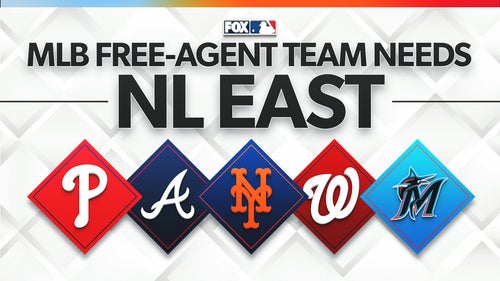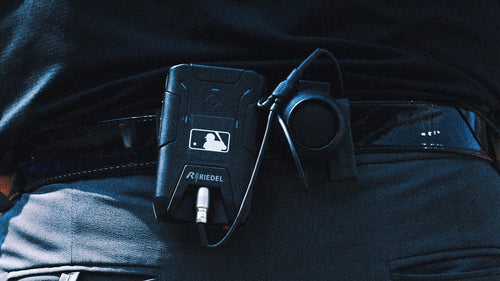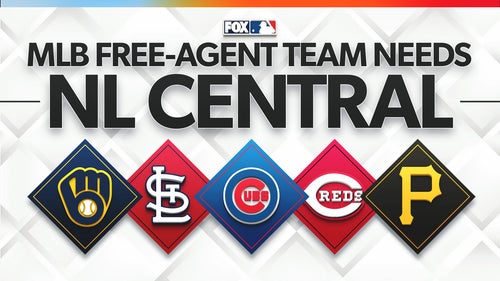Shohei Ohtani's ex-interpreter charged with stealing $16M from baseball star in sports betting case
LOS ANGELES (AP) — Federal authorities charged the former longtime interpreter for Los Angeles Dodgers star Shohei Ohtani on Thursday with federal bank fraud, alleging that he stole more than $16 million from the Japanese sensation to cover gambling bets and debts.
Interpreter Ippei Mizuhara, a constant presence beside Ohtani in baseball stadiums across the country since 2018, abused the two-way player's trust in him and exploited the language barrier to plunder a bank account that only he could access, prosecutors said.
U.S. Attorney Martin Estrada said Mizuhara was so intertwined in Ohtani's life and career that he became the star's “de facto manager." The role enabled him to withdraw money from the account — at times lying and impersonating Ohtani to bank employees — to finance his "insatiable appetite for illegal sports betting."
Thursday's announcement, at a packed news conference in downtown Los Angeles, ended weeks of speculation about Mizuhara's self-admitted gambling problems, the wide-ranging federal investigation and Ohtani's role in the scandal.
Estrada said that there is no evidence that Ohtani was aware of his interpreter’s actions, adding that Ohtani has cooperated with investigators.
“I want to emphasize this point: Mr. Ohtani is considered a victim in this case,” he said.
The criminal complaint — detailing the scheme through text messages, financial records and recordings of phone calls — showed even Mizuhara knew the game was over. In a message to his illegal bookmaker on March 20, the day the Los Angeles Times and ESPN broke the news of the investigation, he wrote: “Technically I did steal from him. it’s all over for me.”
Mizuhara faces up to 30 years in federal prison if he’s convicted of a single count of bank fraud. His attorney, Michael G. Freedman, declined to comment Thursday. Mizuhara’s first appearance in federal court is likely to occur this week.
The scale of the theft shocked the sports community, but also further absolved Ohtani from wrongdoing in baseball’s biggest gambling disgrace since Pete Rose was banned for life. Major League Baseball opened its own investigation after the controversy surfaced last month, and the Dodgers immediately fired Mizuhara.
“Given the information disclosed (Thursday), and other information we have already collected, we will wait until resolution of the criminal proceeding to determine whether further investigation is warranted,” MLB said in a statement.
MLB rules prohibit players and team employees from wagering — even legally — on baseball. MLB also bans betting on other sports with illegal or offshore bookmakers.
Ohtani left the Los Angeles Angels in December to sign a record $700 million, 10-year contract with the Dodgers. Ohtani and Mizuhara had been daily companions since Ohtani joined the Angels in 2018. Ohtani’s baseball salaries prior to the Dodgers deal totaled around $40 million, although it’s also expected he earns tens of millions at least in endorsements each year.
Federal investigators say Mizuhara made around 19,000 wagers between December 2021 and January 2024 — nearly 25 bets per day on average. The wagers ranged from roughly $10 to $160,000 per bet, averaging around $12,800. Estrada said investigators did not find any evidence Mizuhara had wagered on baseball.
While Mizuhara’s winning bets totaled over $142 million, which he deposited in his own bank account and not Ohtani's, his losing bets were around $183 million — a net loss of nearly $41 million.
At one point, the bookmaker couldn't reach Mizuhara and threatened to approach Ohtani, identified as Victim A in the criminal complaint.
“Hey Ippie, it’s 2 o’clock on Friday. I don’t know why you’re not returning my calls. I’m here in Newport Beach and I see (Victim A) walking his dog," the bookmaker wrote to Mizuhara on Nov. 17, 2023. "I’m just gonna go up and talk to him and ask how I can get in touch with you since you’re not responding? Please call me back immediately.”
The alleged fraud also spanned the lucrative memorabilia market. Investigators seized roughly 1,000 collectible baseball cards, including for such players as Yogi Berra, and discovered approximately $325,000 in transactions to online retailers from January to March. Authorities believe Mizuhara purchased the cards from the sites with the intent to resell them later.
Conflicting reports engulfed the beginning of the baseball season last month, prompting a swift move to filing the charge.
“We understood there was a significant amount of public interest in this case,” Estrada said.
Mizuhara told ESPN on March 19 that Ohtani paid his gambling debts at the interpreter’s request, saying the bets were on international soccer, the NBA, the NFL and college football.
But ESPN said Mizuhara changed his story the next day, saying Ohtani had no knowledge of the gambling debts and had not transferred any money to bookmakers.
Ohtani said he first became aware of Mizuhara’s gambling problem during a team meeting after the Dodgers' March 20 win over the San Diego Padres in Seoul during MLB’s first game in South Korea.The LA Times and ESPN published their stories hours later.
Five days later, Ohtani told a Dodger Stadium press conference that he never bet on sports or knowingly paid any gambling debts accumulated by his interpreter. He placed responsibility entirely on Mizuhara, and refuted the interpreter's inconsistent accounts of whether Ohtani had paid off Mizuhara’s gambling debts.
“I am very saddened and shocked someone whom I trusted has done this,” the Japanese star said through a new interpreter.
“Ippei has been stealing money from my account and has been telling lies,” Ohtani said. “I never bet on sports or have willfully sent money to the bookmaker.”
According to the criminal complaint, the Mizuhara case stemmed from a broader probe of illegal sports bookmaking organizations operating in Southern California and the laundering of proceeds through casinos in Las Vegas.
“To date, these investigations have led to criminal charges and/or convictions of 12 criminal defendants and one money service business, as well as non-prosecution agreements with two Las Vegas casinos,” the complaint said. “The investigations remain ongoing and have multiple targets, not all of whom are related to each other.”
__
Associated Press writer John Antczak contributed to this report.









